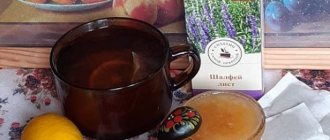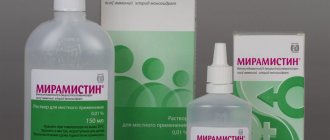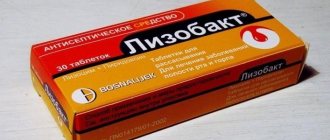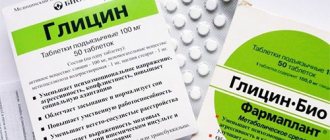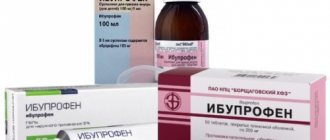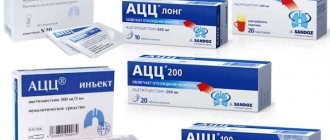Antiviral drugs during lactation in the first days
Before using antiviral drugs during lactation, the following factors should be considered:
- Every substance taken orally reaches the baby through breast milk.
- The child may develop allergies to medications. This especially applies to products that contain dyes or flavors.
- Some medications can change the taste of breast milk. Therefore, it is possible that the child will refuse the breast altogether.
Other means
Among herbal medicines, immunomodulators include those containing echinacea extract. During lactation, alcohol tincture of Echinacea is prohibited, but tablets with Echinacea are allowed (under medical supervision). Echinacea has the following effects:
- increasing the body's resistance to viral infections,
- general strengthening effect,
- increase in the number of blood cells,
- reduction of illness time.
Photo: etinay / Pixabay.com
Derinat
Derinat is another immune-strengthening agent that can be used during breastfeeding. It contains sodium deoxyribonucleate. Medicine:
- has antiviral properties,
- has a regenerating effect,
- increases immunity,
- stimulates the functioning of the lymphatic system.
Indications for use:
- rhinitis,
- pharyngitis,
- ARVI,
- stomatitis.
Antiviral drugs during lactation Kagocel
For colds during lactation, doctors often prescribe the drug Kagocel to women. Based on numerous studies, medical opinions are mixed.
"Kagocel" is one of the popular effective drugs. Its content combines a plant base and a nanopolymer; they make the drug effective and safe. Effectiveness occurs within the first four days of use. This drug can be used not only as an antiviral agent, but also for preventive purposes. The drug is available in tablet form.
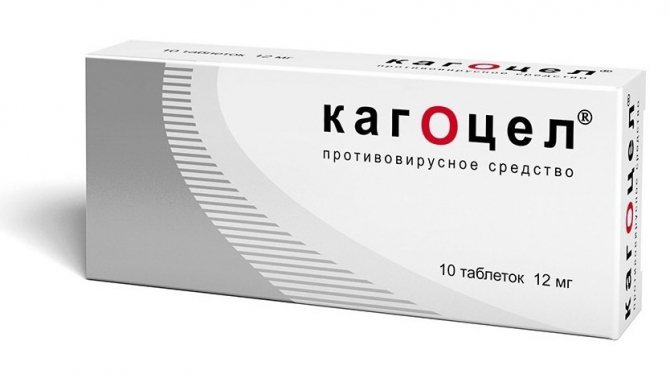
This drug is contraindicated in cases of hypersensitivity and lactose intolerance. It is not recommended for pregnant women or during lactation. If you increase the dosage, nausea, vomiting, and acute spasmodic pain in the abdomen may occur. This is stated in the Kagocel instructions for use.
However, if you adhere to the required dosage and doctor’s recommendations, the active substances will not enter the bloodstream and, accordingly, breast milk. The maximum concentration in the body of one dose occurs after 48 hours. The drug will be excreted from the body of a nursing mother through the intestines. After just seven days, the dose of the drug taken will be eliminated from the body by 88%. Therefore, if you follow the dosage, the drug is non-toxic and therefore safe.
While using this medication, be sure to take the tablet with water only. Keep a break between each dose: 4 hours.
Antiviral drugs for treating influenza
Flu is one of the most severe and dangerous respiratory diseases. Therefore, many effective drugs have been developed to treat influenza.
Common antiviral drugs for treating influenza:
- remantadine,
- amantadine,
- umifenovir (Arbidol),
- oseltamivir (Tamiflu),
- zanamivir (Relenza).
All these substances act directly on the influenza virus, disrupting its replication in cells, and alleviate the symptoms of the disease.
Tamiflu
Tamiflu is an antiviral agent that is active against the most dangerous strain of influenza A virus, H1N1. The active substance in Tamiflu is oseltamivir, which passes into milk in small quantities. However, oseltamivir can also be used in the treatment of infants, therefore, during lactation, Tamiflu can be recommended for nursing mothers, but treatment must be carried out under the supervision of a doctor.
What antiviral drugs are possible during lactation list
Every nursing mother should know what antiviral medications she can take for a cold. When choosing an antiviral drug, you need to pay attention to the presence of interferon in the drug. The list of safe and approved drugs is quite narrow:
- "Grippferon" is produced in two forms: drops and sprays. Therefore, based on personal preferences, you should choose a convenient form. The instructions indicate that the drug can be used both for preventive purposes and directly for therapeutic purposes.
- "Nazoferon". This drug contains recombinant interferon 2-alpha. After nasal administration, this drug “processes” pathogenic microflora well and also stimulates the activity of the immune system. The drug may pass into milk, but in small quantities. It won't harm the baby in any way.
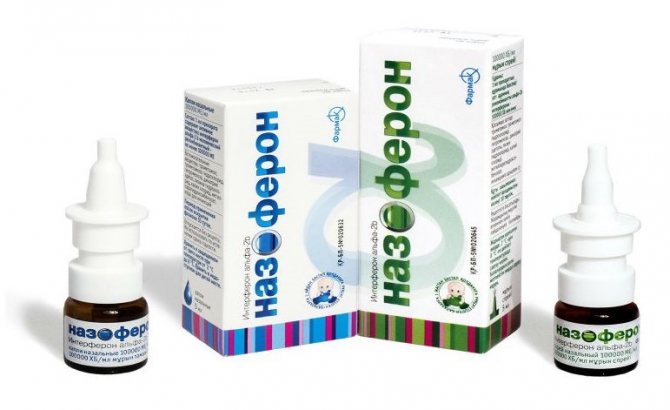
- "Viferon" is one of the most popular safe medications for nursing mothers and children. Doctors often prescribe this drug in the form of suppositories. However, the product is available in the form of suppositories and ointments.
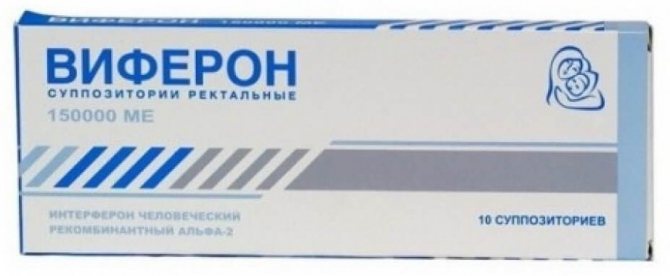
- The antiviral drug “Immunal” contains a herbal immunomodulator. Manufacturers produce the product in the form of tablets and solution.
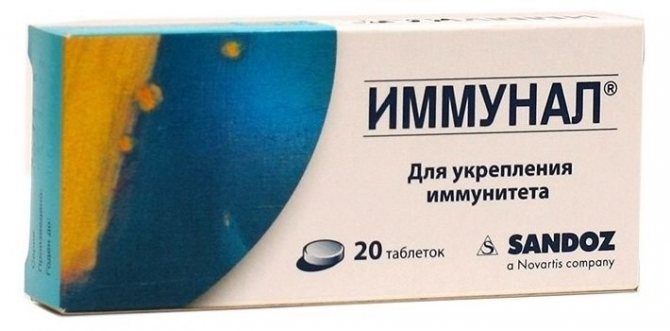
- "Derinat" is considered a universal drug, based on sodium deoxyribonucleate. This drug has an immunomodulatory, antiviral, and regenerative effect. This remedy is also effective for inflammation of the lymphatic system. Contraindications include hypersensitivity. Therefore, be sure to consult a doctor before use.
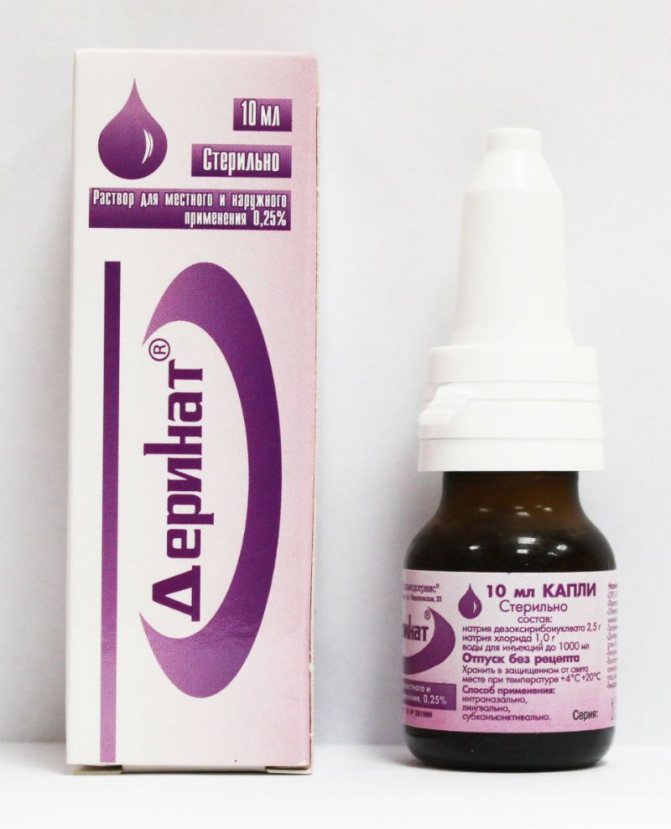
- “Anaferon”, “Ergoferon” - these drugs contain purified antibodies, human interferon and histamine. These drugs are often safely prescribed by doctors, since they do not pose any particular danger.
Of course, antiviral drugs for hepatitis B are perceived by the body purely individually.
Doctors definitely approve and advise all breastfeeding women to use antiviral drugs after feeding their baby. The active substances will be eliminated before the next feeding.
"Viferon" is one of the commonly used medications
When you next visit your doctor, ask about what antiviral medications you can take while breastfeeding. Surely the doctor will mention Viferon suppositories. They contain different amounts of recombinant interferon. The product is available in several forms: suppositories and ointment (gel).
Medicine is prescribed not only for the treatment and prevention of respiratory diseases. It is used for urogenital pathologies, hepatitis viruses, and also to prevent complications. "Viferon" in the form of an ointment does not penetrate into the baby through milk. Suppositories are safe; they are often prescribed by pediatricians to children themselves.
Antiviral drugs during lactation Komarovsky
Answering the question of what antiviral drugs can be used during lactation, Komarovsky believes that one of the main features in treatment is to “turn on” the body’s resources to fight infection. In a matter of days, you can cope and overcome the disease with medications. You also need to follow certain rules:
- Under no circumstances should you self-medicate;
- use minimal therapeutic doses;
- give preference to drugs that have been proven over the years;
- read the instructions carefully;
- be sure to consult a doctor.
Drug treatment
A viral disease is an infection (flu, herpes, pharyngitis). Viruses reproduce inside a living, active cell. These agents infect all types of organisms - humans, animals, plants, bacteria.
Doctors prescribe antiviral drugs to fight the infection. Thanks to clinical trials, the effectiveness and safety of some drugs has been proven. For example, antiherpetic, anti-influenza, anti-retrovirus, Interferons, Ribavirin.
Action of drugs:
- Stimulate the immune system to fight the virus.
- Direct attack of infection.
The sooner treatment for a cold begins, the faster it will subside. The use of antiviral drugs is carried out for a week, without antibiotic therapy. Before ingestion, it is important to read the instructions. Nursing mothers, for whom the list of medicinal substances is limited, should be especially careful. Only a doctor prescribes safe drugs, determining the exact, permitted dosage and active substance.
We recommend reading: When do periods begin after childbirth after breastfeeding?
Antiviral drugs during lactation for prevention
Probably everyone understands that disease prevention is the first way to protect yourself from contracting a viral infection. However, you should not get carried away with preventive measures. To prevent the disease, prefer nasal ointments, sprays, drops rather than tablets. For prevention, you can use the following antiviral drugs:
- "Grippferon";
- "Viferon";
- "Oscillococcinum".
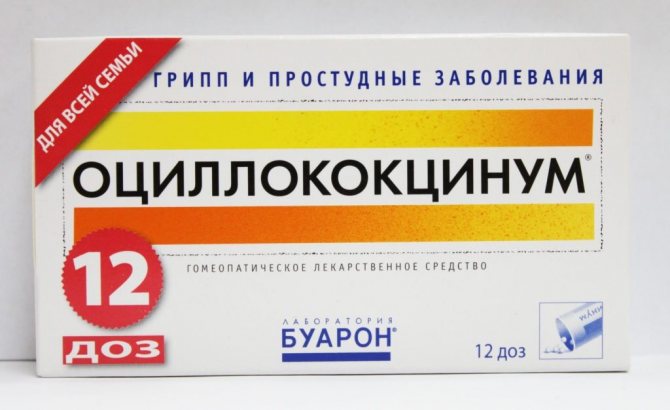
Immunostimulating antiviral agents
They can be classified as anti-virus only conditionally, since they do not directly affect viruses. However, doctors often prescribe them to nursing mothers for viral diseases (flu, ARVI). First of all, these are immunostimulating agents containing proteins active against viruses (interferons). These drugs are mainly used for the treatment and prevention of influenza and ARVI. The most commonly used:
- Nazoferon,
- Viferon,
- Interferon drops,
- Grippferon,
- Laferobion.
These drugs have no contraindications during lactation. This is due to the fact that Grippferon, Interferon and Nazaferon must be instilled into the nose, and Viferon is available in the form of suppositories. That is, the components of these drugs do not enter the systemic circulation. In addition, medications with interferon are often prescribed to infants.
The mechanism of action of another type of drug, interferon inducers, is based on the activation of the immune system, which more actively fights viruses. When treating ARVI (not influenza), the only choice among antiviral drugs will be medications containing interferon or interferon inducers.
Antiviral drugs with an immunostimulating effect:
- Cycloferon,
- Cytovir-3,
- Ingavirin,
- Kagocel,
- Polyoxidonium.
Also allowed during lactation (however, they are practically ineffective) are homeopathic medicines - Oscillococcinum, Anaferon, Ergoferon, Aflubin.
Antiviral drugs are inexpensive but effective during lactation
Among the inexpensive but effective antiviral drugs are the following:
- "Oscillococcinum" is an inexpensive remedy - about 600 rubles. Effective during the first days of the disease.
- Tamiflu is an inexpensive drug that has a strong antiviral effect, but a nursing woman should only use it as prescribed by a doctor. The cost does not exceed 1000 rubles;
- For preventive purposes, you can use Oksolin nasal ointment. Price – no more than 50 rubles;
- "Nazoferon" - from 160 rubles;
- "Viferon" - from 500 rubles;
- “Derinat” - from 200 rubles.
Remember that during a cold you need to drink a lot of liquid: broth, warm tea, etc. After all, drinking plenty of fluids helps remove harmful substances and bacteria. Also, liquid can increase the level of lactation. Also remember about preventive measures and vitamin complexes that will help you avoid illness. Don't get sick, eat right and be healthy! After all, every baby needs a healthy, and therefore happy, mother!

Do you now understand what antiviral drugs are allowed during lactation? Do you agree? Leave your opinion or feedback for everyone on the forum.
reviews women's forum mom womanik ru (pregnancy, children, treatment and more)
"Engistol" and "Oscillococcinum": homeopathic remedies
The composition of the drug "Engistol" includes sulfur and hirudinaria. There is also lactose. Therefore, if your child is intolerant to this substance, you should stop using it. The safety of a medicine is based on its homeopathic composition. This remedy has no contraindications for use, with the exception of hypersensitivity. Engistol is prescribed for symptoms of virus and flu: runny nose, fever, cough, general deterioration of health.
Another homeopathic remedy is Oscillococcinum. This drug is better known than its predecessor. Medicine is prescribed for treatment and prevention. It can be used during breastfeeding and pregnancy. Contains barbary duck heart and liver extract. It is known that Oscillococcinum has no proven effectiveness. Nevertheless, homeopathic antiviral drugs during lactation help women cope with the first signs of a cold and prevent complications.
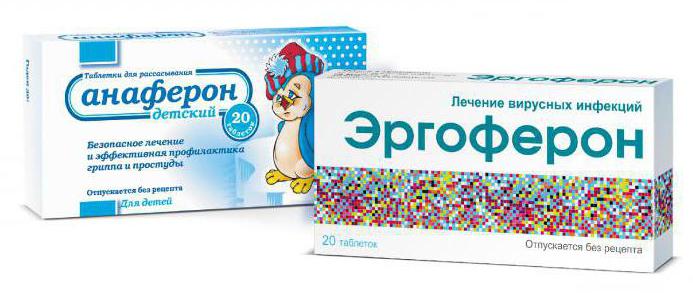
How to choose antiviral medications for infants
Antiviral medications can also be prescribed to infants, not just their mothers. Indications for this are reduced immunity in the baby and a severe course of the disease. A similar problem is reduced immunity, especially typical for premature babies. It is not recommended to give immunomodulatory drugs to children with normal immunity for their age - this can disrupt the formation of natural defenses.
Children in the first year of life are susceptible to many viral diseases. This:
- ARVI,
- chicken pox,
- flu,
- rotavirus and enterovirus infection,
- measles,
- scarlet fever.
However, the list of antiviral medications for children is limited because most medications have not been tested on children and have potentially harmful additives. Therefore, mothers should give antiviral medications to their infants only on the advice of the attending physician.
Most often, infants are prescribed immune stimulants and medications with interferon (Nazoferon, Grippferon, Interferon). However, it must be remembered that uncontrolled use of antiviral drugs can do more harm than good. True, homeopathic medicines (Anaflubin, Anaferon, Ergoferon) cannot harm children, since they contain negligible active substances. However, their effectiveness is highly questionable.
Interferon-containing drugs for the treatment of children under one year of age
Viferon contains recombinant alpha interferon. The product is available in the form of rectal suppositories. To treat a baby, it is recommended to use no more than 3 suppositories per day. Interferon drops can also be used for children under one year of age. It is recommended to instill a drop of the product into each nostril 5-6 times a day.
